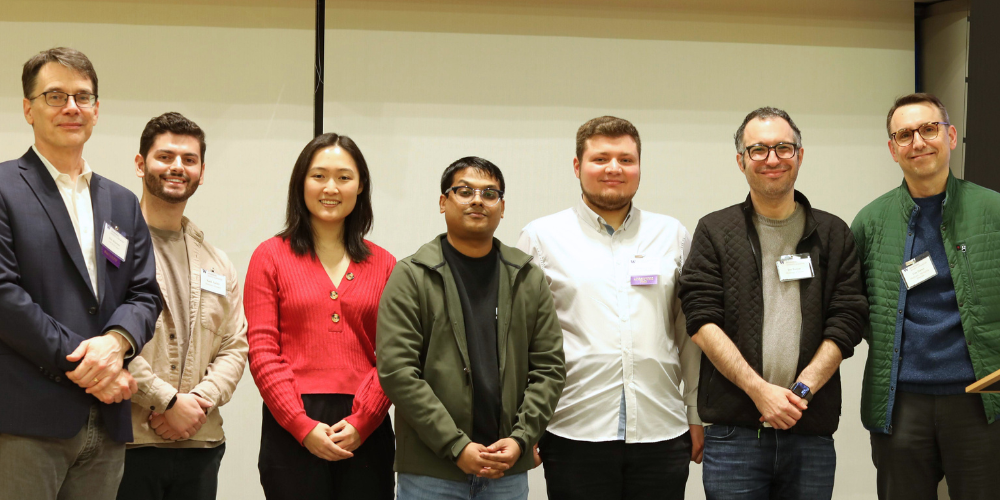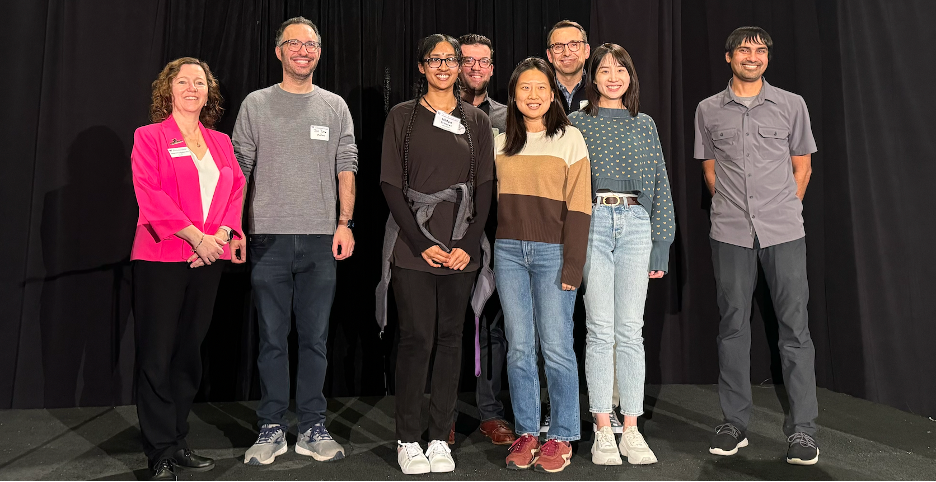Madrona has long been inspired by the groundbreaking work emerging from the University of Washington, a powerhouse of technical talent and innovation. This year, we had the opportunity to further our commitment to supporting research with real-world impact by sponsoring the Best Innovation Toward Commercialization Award at the UW Electrical & Computer Engineering (ECE) Research Showcase. This award recognizes cutting-edge projects with the potential to move beyond the lab and shape the future of technology.
The projects at last week’s UW ECE showcase tackled some of the most pressing challenges in computing, robotics, and autonomy — fields that are increasingly critical as industries become more reliant on intelligent, connected systems. Researchers presented novel approaches to AI safety, augmented wireless awareness, and next-generation sensing technologies, all aimed at solving real-world problems and driving technological progress.
One of the most persistent challenges in autonomous systems is achieving accurate navigation when GPS signals are weak or unavailable—a problem that affects drones, self-driving vehicles, and other technologies that depend on precise positioning. Among the many impressive projects, one stood out for its immediate commercial relevance.
FusionFlight, a project developed by a team of UW researchers, introduced a breakthrough sensor-fusion technique designed to enhance navigation reliability in GPS-denied environments. Last week, this innovation earned them the Best Innovation Toward Commercialization Award at the UW ECE. With more than 50 research projects pushing the boundaries of AI, wireless technology, and robotics, competition was fierce. But FusionFlight stood out, offering a practical solution to a major obstacle in autonomy and demonstrating both technical sophistication and real-world applicability.
The energy at the showcase was palpable, with students presenting their research and prototypes, thoughtfully engaging in discussions, and demonstrating an impressive depth of knowledge and preparation. From zero-shot visual tracking with motion-aware memory to augmenting wireless awareness with XR to enhancing AI safety and guardrails, the breadth and sophistication of the projects left us genuinely excited about the future of innovation in Seattle and beyond. Among so many talented researchers across 50+ compelling project posters, and over 30 lightning talks, selecting a winner was a difficult decision.
We are delighted to announce FusionFlight as the first winner of the Best Innovation Toward Commercialization Award sponsored by Madrona. Developed by students Gokul Nathan, Alperen Cuci, and Ernst Anderson, advised by Professor Sep Makhsous, and sponsored by the ARC Lab, FusionFlight tackles a major challenge in autonomous navigation: mitigating GPS failures with a novel sensor-fusion approach.
By correcting multipath errors — distortions that occur when GPS signals bounce off buildings or other obstacles — FusionFlight significantly improves the accuracy and reliability of autonomous vehicle navigation. This breakthrough has immediate commercial potential across industries that depend on precise positioning, including autonomous drone fleets, advanced air mobility, self-driving vehicles, agriculture, construction, and defense.
What set FusionFlight apart was not just the technical sophistication of their work but also their ability to clearly communicate its real-world impact. Their compelling demonstration showcased both the depth of their research and its potential to transform how autonomous systems operate in challenging environments.
With standard GPS systems becoming increasingly ineffective in challenging environments while simultaneously growing more critical for a wide range of autonomous systems requiring precise navigation, FusionFlight’s sensor-fusion approach offers a compelling alternative. The technology addresses this gap by providing enhanced reliability and accuracy, essential for the safe and effective operation of autonomous systems.
The Madrona team that collaborated to select the winner included Rasik Parikh, Rolanda Fu, Jon Turow, Mark Nelson, Tim Porter, and ECE Affiliate Professor Babak Parviz.
At Madrona, we are proud to support the next generation of innovators and researchers as they transform academic breakthroughs into real-world solutions. The work emerging from UW ECE represents the kind of cutting-edge thinking that fuels new companies, industries, and technologies with the potential to change the way we live and work. We’ve seen this firsthand with startups like A-Alpha Bio, a startup co-founded and led by UW students when they were graduate researchers and with scientific advisors that include Eric Klavins, the current ECE Department Chair. The company has since become a leader in AI-driven drug discovery. Its success underscores the power of university research to drive real-world impact — just as we hope to see with this year’s winning innovations.
FusionFlight’s success is a testament to this, demonstrating how university research can translate into commercial impact. With GPS-reliant systems becoming increasingly critical across industries, solving the reliability challenge is not just an academic problem — it’s a business imperative. We look forward to seeing how the FusionFlight team continues to develop this technology and how other UW researchers push the boundaries of what’s possible in the years ahead.
Congratulations to all the participants in this year’s showcase — we’re already excited to see what groundbreaking ideas next year will bring.



